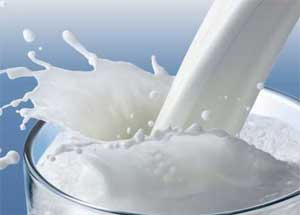- Home
- Editorial
- News
- Practice Guidelines
- Anesthesiology Guidelines
- Cancer Guidelines
- Cardiac Sciences Guidelines
- Critical Care Guidelines
- Dentistry Guidelines
- Dermatology Guidelines
- Diabetes and Endo Guidelines
- Diagnostics Guidelines
- ENT Guidelines
- Featured Practice Guidelines
- Gastroenterology Guidelines
- Geriatrics Guidelines
- Medicine Guidelines
- Nephrology Guidelines
- Neurosciences Guidelines
- Obs and Gynae Guidelines
- Ophthalmology Guidelines
- Orthopaedics Guidelines
- Paediatrics Guidelines
- Psychiatry Guidelines
- Pulmonology Guidelines
- Radiology Guidelines
- Surgery Guidelines
- Urology Guidelines
Consumption of yogurt, cheese may decrease risk of heart disease

A new study published in the British Journal of Nutrition has found that an increased consumption of fermented dairy product decreases the risk of incident coronary heart disease (CHD). On the contrary, an increased consumption of non-fermented dairy products was associated with an increased risk of incident CHD.
Earlier studies have shown that fermented dairy products have more positive effects on blood lipid profiles and on the risk of heart disease than other dairy products. Fermented dairy products include cheese, yogurt, quark, kefir, and sour milk and non-fermented dairy products include milk. However, research on the topic remains scarce.
Timo T. Koskinen, Institute of Public Health and Clinical Nutrition, University of Eastern Finland, Kuopio, Finland, and colleagues conducted the study to investigate whether fermented and non-fermented dairy products have distinct associations with the risk of incident CHD in a population with high dairy product intake.
Also Read: Busting the mucus myth: Its ok to drink milk during cold
Approximately 2,000 men participated in the study. Their dietary habits were assessed at the beginning of the study in 1984-1989, and they were followed up for an average of 20 years. During this follow-up, 472 men experienced an incident coronary heart disease event.
The study participants were divided into groups on the basis of how much they ate different dairy products, and the researchers compared the groups with the highest and lowest consumption, while also taking various lifestyle and nutrition factors into consideration.
Also Read: Newborns with congenital heart disease have enlarged kidneys
Key Findings:
- When the study participants were divided into four groups on the basis of their consumption of fermented dairy products with less than 3.5% fat, the risk of incident coronary heart disease was 26% lower in the highest consumption group compared to the lowest consumption group.
- Sour milk was the most commonly used low-fat fermented dairy product.
- After adjusting for potential confounders, those in the highest (v. lowest) intake quartile of fermented dairy products had 27 % lower risk of CHD.
- In contrast, those in the highest intake quartile of non-fermented dairy products had 52 % higher risk of CHD.
- A very high consumption on non-fermented dairy products was associated with an increased risk of incident coronary heart disease.
- Milk was the most commonly used product in this category, and a very high consumption was defined as an average daily milk intake of 0.9 liters. Lower consumption levels were not associated with the risk.
"Here in Finland, people's habits of consuming different dairy products have changed over the past decades. For instance, the consumption of milk and sour milk have declined, while many fermented dairy products, such as yogurt, quark, and cheeses, have gained in popularity," Adjunct Professor Jyrki Virtanen from the University of Eastern Finland says.
The new study provides further evidence on the health benefits that fermented dairy products may have over non-fermented ones. All the mechanisms are not understood yet, but they may be linked to compounds forming during the fermentation process.
"These results suggest that fermented and non-fermented dairy products can have opposite associations with the risk of CHD," concluded the authors.
For further reference log on to http://dx.doi.org/10.1017/S0007114518002830

Disclaimer: This site is primarily intended for healthcare professionals. Any content/information on this website does not replace the advice of medical and/or health professionals and should not be construed as medical/diagnostic advice/endorsement or prescription. Use of this site is subject to our terms of use, privacy policy, advertisement policy. © 2020 Minerva Medical Treatment Pvt Ltd